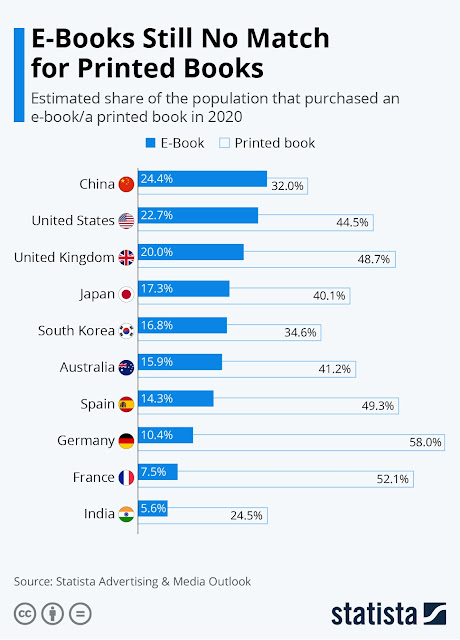E-books have become very popular across the globe, especially in developed countries and countries with a big population reading in English/ Roman scripts.
The following factors have contributed to popularity of e-books:
- Easy publications of e-books through Amazon and scores of other self-publishing platforms
- The ease of compiling, purchasing and reading on e-book readers such as Kindle and Kobo book reader (also their desktop versions)
- Readability of electronic books in different formats including PDF
- Availability of a huge number of electronic books through libraries, Project Gutenberg, free and discounted book distribution platforms, author websites/ blogs and free PDF books (mostly unauthorized, but with big collections)
However, if you thought that e-books have run over the traditional book publishing industry, you are wrong. And, it is not an impression but a hard fact. Look at the figures given by Statista about book purchases in some major book consuming countries. Please note that the figure for e-books does not include free books.
Please note that the serious reading population still prefers buying printed books rather than e-books, even though the data seems to be of a COVID-affected year (2020) when there was big disruption in the sale of printed books.
This is what Statista has to say:
These findings suggest that e-books will not be the final nail in the coffin of printed books but rather a complementary product that should ultimately benefit the publishing industry. People may grab an e-reader when they head to the beach or commute to work, but as far as actual books go, there’s nothing like the real thing.

Comments
Post a Comment